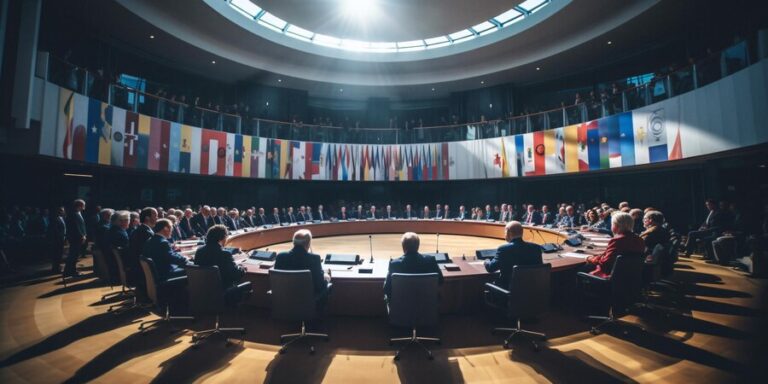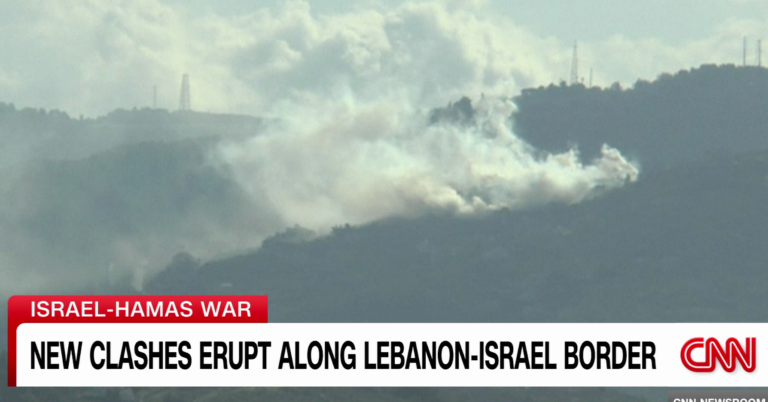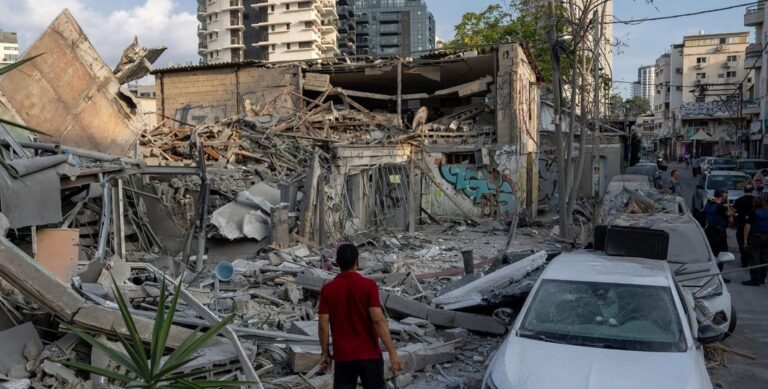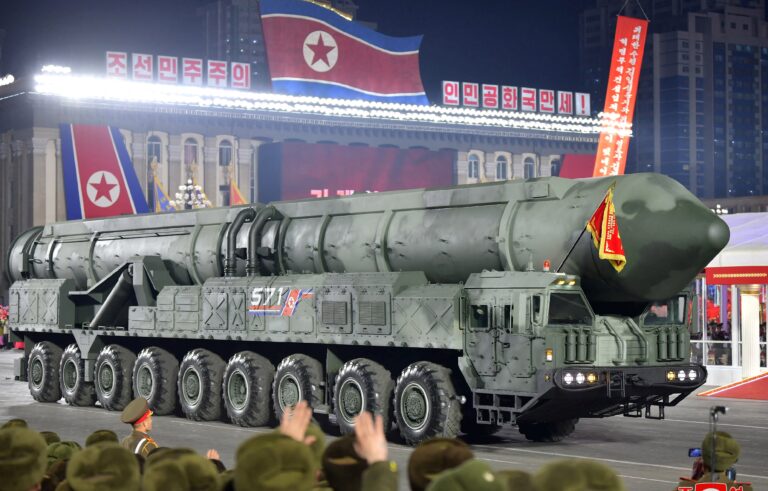Exploring the Implications of Ukraine-Russia News on Global Geopolitics
The ongoing conflict between Ukraine and Russia has captured the attention of the world, with daily updates and news headlines dominating media outlets. The Ukraine-Russia war has far, reaching implications that extend beyond the borders of these two nations, impacting global geopolitics in profound ways. From shifts in diplomatic strategies to a growing humanitarian crisis, this article will explore the multifaceted implications of the latest Ukraine-Russia news on a global scale.
But first, let’s delve into an overview of the conflict itself to better understand its origins and complexities.
Overview of the Ukraine-Russia war
The Ukraine-Russia war has been a long-standing conflict that has captured global attention. It began in 2014 when Russia annexed Crimea, leading to heightened tensions between the two nations. Since then, the situation has escalated into a full-blown military conflict with devastating consequences.
The war in Ukraine has seen intense fighting and territorial disputes, resulting in loss of life and displacement of thousands of people. Both sides have engaged in aggressive actions, with Ukraine seeking to defend its sovereignty and Russia asserting its influence in the region. The conflict has had far-reaching implications on geopolitics, sparking concerns about regional stability and international relations.
Russia-Ukraine Key Events
The Russia-Ukraine conflict has been marked by a series of key events that have shaped the course of this ongoing geopolitical crisis. From the annexation of Crimea in 2014 to the recent escalation in tensions along the Ukrainian border, these events have had far-reaching implications for both countries and the wider international community.
One significant event was Russia’s annexation of Crimea, which drew condemnation from many nations and sparked a major shift in global geopolitics. This move heightened tensions between Russia and Ukraine, leading to an armed conflict in eastern Ukraine between Ukrainian government forces and Russian-backed separatists. The conflict has seen numerous ceasefire agreements come into effect but often break down, resulting in further violence and casualties on both sides.
These key events not only demonstrate the complex nature of the Russia-Ukraine conflict but also highlight its potential to impact global politics. The actions taken by Russia have raised concerns about violations of international law and sovereignty, prompting responses from Western powers such as economic sanctions against Moscow. As this volatile situation continues to unfold, it is clear that its repercussions will extend beyond just Ukraine and Russia – shaping diplomatic relations, security alliances, and regional dynamics across the globe.
List of key events in the Russia-Ukraine war
The Russia-Ukraine war has been marked by a series of key events that have shaped the course of this ongoing conflict. From territorial disputes to military offensives, these events have had far-reaching implications for both countries and the global geopolitical landscape.
One significant event was the annexation of Crimea by Russia in 2014. This move sparked international condemnation and led to a surge in tensions between Ukraine and Russia. It also triggered further clashes in eastern Ukraine, where pro-Russian separatists declared independence from Kiev.
In response, Ukraine launched military operations against the separatist groups, leading to a prolonged period of violence and casualties on both sides. The conflict escalated with the downing of Malaysia Airlines Flight MH17 in 2014, which resulted in the loss of all passengers on board.
Efforts at ceasefire agreements were made throughout the years but failed to bring lasting peace. In 2022, another major escalation occurred when Russia launched an invasion into Ukrainian territory, leading to intense fighting across various regions.
These key events highlight how complex and volatile this conflict has become. With each development bringing new challenges and ramifications for those involved, it is clear that resolving this war will require sustained diplomatic efforts from international actors seeking stability in Eastern Europe.
Biden Administration’s Strategy in Ukraine
The Biden administration has made significant shifts in its strategy towards Ukraine, signaling a renewed focus on supporting the country in its ongoing conflict with Russia. With tensions escalating between the two nations, President Biden has taken steps to demonstrate his commitment to Ukraine’s sovereignty and security.
The administration has provided military aid to Ukraine, including weapons and equipment, aimed at bolstering their defense capabilities. This support serves as a clear message to Russia that any further aggression will not be tolerated. Furthermore, President Biden has actively sought multilateral cooperation by engaging with European allies and partners to present a united front against Russian aggression.
The increased emphasis on supporting Ukraine is indicative of the importance placed on countering Russian influence in the region. By strengthening ties with Ukraine and rallying international support, the Biden administration aims to deter future acts of aggression while also positioning itself as a key player in global geopolitics. The evolving strategy underlines a shift towards prioritizing stability and democracy in Eastern Europe amidst an increasingly complex geopolitical landscape.
Shifts in the Biden administration’s strategy towards Ukraine
The Biden administration has brought significant shifts in its strategy towards Ukraine, signaling a stronger stance against Russia’s aggression. The United States has increased military support to Ukraine by providing lethal aid and conducting joint military exercises. This move not only demonstrates solidarity with Ukraine but also acts as a deterrent to further Russian encroachment.
The Biden administration is actively engaging with European allies to build a united front against Russian aggression. Through diplomatic channels and multilateral forums like NATO, the aims to strengthen international pressure on Russia and ensure a coordinated response.
These changes reflect a more assertive approach by the Biden administration in standing up to Russian aggression and supporting Ukraine’s sovereignty. The shift in strategy emphasizes the importance of collective security efforts and sends a clear message that violations of international norms will not be tolerated. As tensions persist between Russia and Ukraine, it remains crucial for the United States to maintain strong alliances while exploring additional avenues for resolving this protracted conflict.
Global Political Implications
The Ukraine-Russia conflict has far-reaching implications for global politics. The ongoing war has intensified geopolitical tensions and raised concerns about territorial integrity, sovereignty, and international security.
The conflict has strained relations between Russia and Western countries, leading to increased sanctions and diplomatic pressure on Moscow. This has resulted in a realignment of alliances as countries seek to support either side of the dispute. Additionally, the conflict serves as a reminder of the fragility of borders and raises questions about the effectiveness of international institutions in resolving such disputes.
Furthermore, the global political implications extend beyond Russia-Ukraine dynamics. The conflict has highlighted broader power struggles between major world powers like China and the United States who are keenly observing developments in Eastern Europe for potential opportunities or risks. It also underscores regional divisions within Europe itself as some nations advocate for stronger responses while others emphasize dialogue and diplomacy.
In short, the Ukraine-Russia conflict is not just a localized issue; it reverberates throughout global politics with consequences that will continue to unfold in unpredictable ways.
Impact of the Ukraine-Russia conflict on global politics
The Ukraine-Russia conflict has far-reaching implications for global politics, stirring up tensions and reshaping alliances on the international stage. This ongoing dispute has heightened geopolitical rivalries and brought attention to the delicate balance of power in Europe and beyond.
At its core, the conflict between Ukraine and Russia represents a clash of interests between East and West. It has sparked debates about sovereignty, territorial integrity, and self-determination, prompting countries around the world to take sides or navigate through a complex web of strategic considerations. The involvement of major global powers such as the United States, European Union, China, and NATO further magnifies the significance of this conflict on a global scale.
As each day passes with no clear end in sight for this protracted crisis, governments worldwide are closely monitoring developments in hopes of averting an escalation that could have dire consequences for regional stability. The impact extends beyond immediate neighbors; it affects diplomatic relations among nations near and far. From influencing sanctions policies to shaping security cooperation agreements, the ripple effects of this conflict are felt across continents as alliances shift and diplomacy takes center stage.
In these uncertain times, the outcome of the Ukraine-Russia conflict will undoubtedly shape future geopolitical dynamics. It serves as a litmus test for multilateral institutions’ ability to respond effectively to crises while raising questions about existing international norms regarding state sovereignty. And as we witness these events unfold before our eyes, it becomes increasingly evident that how each country responds can reverberate throughout our interconnected world – impacting political landscapes both today and tomorrow.
Humanitarian Crisis
The humanitarian crisis resulting from the war in Ukraine is a devastating reality that cannot be ignored. Countless innocent lives have been upended, families torn apart, and communities left shattered. The conflict has led to widespread displacement of people, with many forced to flee their homes in search of safety.
Basic necessities like food, water, and healthcare are scarce commodities for those caught in the midst of this crisis. Access to education has been disrupted, leaving children without the opportunity to learn and grow. The psychological toll on individuals and families is immeasurable as they struggle with trauma and loss.
The international community must step up its efforts to address the urgent needs of those affected by this humanitarian crisis. Providing humanitarian aid and support is crucial in offering relief and hope amidst such dire circumstances. Only through collective action can we begin to alleviate the suffering caused by this ongoing tragedy.
The humanitarian crisis resulting from the war in Ukraine
The war between Ukraine and Russia has not only had devastating consequences on the political and military fronts but has also led to a severe humanitarian crisis. The conflict has displaced thousands of people, leaving them without homes or basic necessities. Families have been torn apart, children have lost access to education, and healthcare systems are struggling to cope with the influx of injured civilians.
In addition to displacement, there is a pressing concern for the safety and well-being of those who remain in conflict zones. Access to food, clean water, and medical aid is limited, putting vulnerable populations at risk of malnutrition and disease. Humanitarian organizations are working tirelessly to provide relief efforts but face significant challenges due to ongoing violence and restricted access.
The human toll of this war cannot be overstated. It highlights the urgent need for international assistance as well as diplomatic efforts towards finding a peaceful resolution. Without immediate action, the humanitarian crisis will continue to worsen, jeopardizing the lives and livelihoods of countless innocent individuals caught in the crossfire.
Military Developments
The conflict between Ukraine and Russia has seen significant military developments that have had far-reaching implications. Both sides have engaged in aggressive actions, with reports of increased troop deployments and clashes along the border. The situation remains volatile, with tensions escalating and fears of a full-scale war intensifying.
In recent weeks, there have been reports of Russian military buildup near the Ukrainian border, raising concerns among the international community. This includes the movement of heavy artillery, tanks, and troops to strategic locations. On the other side, Ukraine has also bolstered its defenses by conducting military exercises and reinforcing its positions. The ongoing military developments highlight the precarious nature of this conflict and underline the potential for further escalation if diplomatic efforts fail to find a resolution.
Updates on military actions and strategies in the conflict
The conflict between Ukraine and Russia has seen ongoing military actions and strategies unfold over time. Both sides have engaged in various tactics to gain an advantage on the battlefield.
On one hand, Ukraine has focused on bolstering its defense capabilities by modernizing its armed forces and strengthening its military alliances with NATO partners. They have also implemented strategies such as asymmetric warfare, using unconventional methods to counter Russian aggression.
Meanwhile, Russia has continued to support separatist groups in eastern Ukraine, providing them with weapons and manpower. They have also conducted large-scale military exercises near the Ukrainian border, raising tensions in the region.
As the conflict continues to evolve, it is crucial to closely monitor these military developments as they directly impact the dynamics of the war and shape future outcomes.
Diplomatic Efforts
Political and diplomatic initiatives have been underway to find a resolution to the ongoing Ukraine-Russia conflict. Various countries, international organizations, and diplomatic envoys have been involved in efforts to de-escalate tensions and promote dialogue between the conflicting parties. Diplomatic channels have been utilized to negotiate ceasefires, facilitate prisoner exchanges, and encourage peaceful negotiations for a lasting solution.
Countries such as the United States, European Union member states, and neighboring nations like Germany and France have taken an active role in mediating discussions between Ukraine and Russia. Multilateral platforms like the Organization for Security and Cooperation in Europe (OSCE) have also played a crucial role in facilitating talks aimed at finding common ground. These diplomatic efforts are essential in fostering understanding among all parties involved while seeking mutually acceptable solutions that address the concerns of both Ukraine and Russia
Political and diplomatic initiatives to resolve the Ukraine-Russia conflict
Political and diplomatic efforts have been at the forefront of international attempts to resolve the ongoing Ukraine-Russia conflict. Various nations and organizations have engaged in negotiations, seeking a peaceful resolution to the crisis. Diplomatic talks, summits, and roundtable discussions have taken place to find common ground and promote dialogue between the involved parties.
International bodies such as the United Nations (UN) and European Union (EU) have played significant roles in facilitating these diplomatic initiatives. They have called for ceasefires, urged both sides to engage in constructive dialogue, and proposed peace plans aimed at de-escalating tensions. Additionally, individual countries like Germany and France have acted as mediators through their participation in the Normandy format meetings with Russia and Ukraine.
These political and diplomatic initiatives demonstrate a collective commitment towards finding a peaceful solution that respects Ukraine’s sovereignty while addressing Russia’s security concerns. However, challenges persist as differences remain deep-rooted between all parties involved. The complex nature of geopolitical interests makes reaching consensus difficult but not impossible. This ongoing process highlights how important sustained diplomacy is when tackling conflicts of this magnitude
Economic Implications
The economic implications of the Ukraine-Russia war cannot be ignored. The conflict has had a significant impact on both countries and the global economy as a whole.
The war has disrupted trade relations between Ukraine and Russia, leading to reduced exports and imports. This has affected various industries, including agriculture, manufacturing, and energy. Businesses in both countries have faced challenges due to sanctions and restrictions imposed by international partners.
Furthermore, the instability caused by the conflict has deterred foreign investment in the region. Investors are hesitant to commit resources to an area plagued by violence and political uncertainty. As a result, economic growth in both Ukraine and Russia has been hampered.
Additionally, neighboring countries that rely on trade with Ukraine or Russia have also experienced negative effects. The disruption of supply chains and decreased demand for goods from these nations have led to economic setbacks across multiple sectors.
The economic implications of this ongoing conflict are far-reaching and continue to evolve as tensions persist between Ukraine and Russia. It is crucial for policymakers around the world to closely monitor these developments in order to mitigate any further damage to global markets.
The economic consequences of the Ukraine-Russia war
The economic consequences of the Ukraine-Russia war have been far-reaching and impactful. The conflict has disrupted trade relations, caused inflation, and led to a decline in foreign investment.
The imposition of sanctions by Western countries on Russia has had a significant impact on both economies. These sanctions have targeted key sectors such as energy, finance, and defense, limiting access to international markets for Russian companies and causing economic stagnation. Additionally, the war has disrupted important trade routes between Europe and Asia that pass through Ukraine-Russia News, leading to higher transportation costs and delays in goods reaching their destinations.
Furthermore, the uncertainty surrounding the situation has deterred foreign investors from entering both Ukraine and Russia. Investors are wary of putting their money into unstable regions where there is an ongoing conflict. This lack of investment hampers economic growth potential and inhibits job creation opportunities for local populations.
In conclusion,
the economic consequences of the Ukraine-Russia war have been detrimental to both countries’ economies. The disruption of trade relations, imposition of sanctions, declining foreign investment all contribute to long-term negative impacts on employment rates and overall economic stability in the region.
Media Coverage and Propaganda
In the midst of the Ukraine-Russia News conflict, media coverage has played a crucial role in shaping public opinion and influencing global perceptions. News outlets from both sides have been actively reporting on the developments, often presenting narratives that align with their respective agendas. This has resulted in a complex web of information, where distinguishing fact from fiction becomes increasingly challenging.
Propaganda has also become a powerful tool used by both Russia and Ukraine to further their objectives. Both sides have employed various tactics to manipulate public opinion, ranging from spreading disinformation to amplifying certain narratives while downplaying others. Such propaganda efforts aim to control the narrative surrounding the conflict and sway international opinion in favor of one side or the other.
As a result, consumers of news must approach information about the Ukraine-Russia News war with caution. It is essential to critically analyze sources, cross-reference multiple outlets, and seek alternative viewpoints to gain a more comprehensive understanding of what is happening on the ground. By doing so, individuals can navigate through the noise created by media coverage and propaganda and form informed opinions based on reliable facts.
The battle for control over information extends beyond traditional news channels as well. Social media platforms have become breeding grounds for misinformation campaigns fueled by bots and trolls seeking to influence public sentiment. Fake accounts spread false narratives designed to sow discord among communities worldwide.
In this era of digital communication dominance, it falls upon individuals to be discerning consumers of news. Fact-checking websites can provide valuable assistance in identifying misleading or false information circulating online. By staying vigilant against manipulation attempts driven by propaganda machines operating behind screens, we can strive towards an informed society that values truth above all else.
Analysis of media coverage and the use of propaganda in the conflict
In the midst of the Ukraine-Russia News conflict, media coverage and propaganda have played a pivotal role in shaping public perception and influencing global opinion. The analysis of how news outlets report on this issue is crucial in understanding the complexities surrounding the conflict.
Media coverage has been both extensive and varied, with different outlets offering contrasting narratives depending on their geopolitical interests or affiliations. Some sources highlight Russia’s alleged aggression and violation of international norms, while others emphasize Ukraine-Russia News internal turmoil and political instability. These divergent perspectives create a complex web of information that can be challenging for consumers to navigate.
Propaganda has also been employed by both sides to manipulate public opinion. This includes spreading false information, promoting biased viewpoints, and utilizing social media as a tool for misinformation campaigns. Such tactics aim to shape narratives that favor one side over the other, further fueling tensions between nations.
The influence of media coverage and propaganda on the Ukraine-Russia News conflict cannot be underestimated. It serves as a reminder that not everything we see or read should be taken at face value. Critical thinking skills are essential in deciphering through these narratives to arrive at an informed perspective on this highly contentious issue.
Future Implications
Looking ahead, the future implications of the Ukraine-Russia News conflict are uncertain and potentially far-reaching. The ongoing war has already had significant consequences for global politics, but what lies ahead could shape international relations for years to come.
There is a concern about the potential for further destabilization in the region. If tensions escalate or if diplomatic efforts fail to find a resolution, it could lead to an even more volatile situation in Eastern Europe. This could have ripple effects across neighboring countries and pose challenges for global security. Additionally, the actions taken by major powers such as the United States and European Union will play a crucial role in determining how this conflict evolves. Their response will not only impact Ukraine-Russia News but also set precedents for similar conflicts around the world.
The economic fallout from this conflict is another factor that cannot be ignored. Ongoing military action and geopolitical tensions have already disrupted trade routes and caused uncertainty within financial markets. A protracted conflict could result in further economic instability both regionally and globally. Moreover, humanitarian concerns continue to mount as thousands of people are displaced from their homes due to violence and insecurity.
While it’s difficult to predict with certainty what lies ahead regarding the Ukraine-Russia News conflict, its future implications on global politics, regional stability, economy. And humanitarian aspects are undeniable factors that demand attention from world leaders and communities alike.
Potential long-term consequences and implications of the Ukraine-Russia conflict
The ongoing Ukraine-Russia News conflict has significant long-term consequences and implications that extend beyond the immediate battlefield. The protracted nature of this conflict could potentially have far-reaching effects on regional stability, global power dynamics. And the international order.
The conflict has heightened geopolitical tensions between Russia and Western countries such as the United States and its allies. This escalating tension could lead to a new era of Cold War-like rivalry, characterized by increased military build-up, arms races. And proxy conflicts in different parts of the world. Furthermore, it may prompt other countries to reassess their alliances. And strategic partnerships, potentially shifting global power dynamics in unforeseen ways.
The humanitarian crisis resulting from this conflict is likely to have long-lasting repercussions for both Ukraine-Russia News and neighboring countries. Displacement of civilians, destruction of infrastructure, loss of lives. All these factors contribute to social instability which can further exacerbate existing political grievances or give rise to new ones. Moreover, addressing the needs of affected populations will require sustained efforts from international organizations and governments alike.
while it is impossible to predict with certainty what the future holds for Ukraine-Russia News relations and their impact on global geopolitics; it is clear that there are potential long-term consequences at stake. As diplomatic efforts continue alongside military developments on the ground; stakeholders must remain vigilant about constantly evolving dynamics; striving for peaceful resolutions that prioritize human rights protection while also safeguarding regional stability.
Conclusion
As we wrap up our exploration of the implications of Ukraine-Russia news on global geopolitics. It becomes clear that this conflict is far from over. The ongoing war between these two nations has not only caused immense human suffering and a devastating humanitarian crisis. But has also significantly impacted global politics and economies.
The Biden administration’s strategy in Ukraine marks a shift from previous administrations, demonstrating a stronger commitment to supporting Ukraine-Russia News against Russian aggression. However, diplomatic efforts have yet to yield any substantial progress towards resolving the conflict.
Looking ahead, the future implications of this conflict remain uncertain. The long-term consequences will depend on various factors such as military developments. Economic repercussions, media coverage and propaganda tactics employed by both sides. It is crucial for us to continue monitoring the situation closely as it continues to shape the dynamics of global geopolitics.







